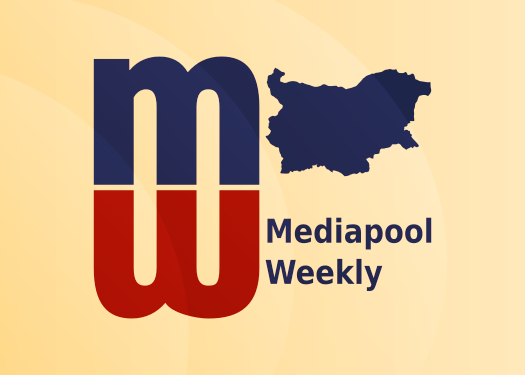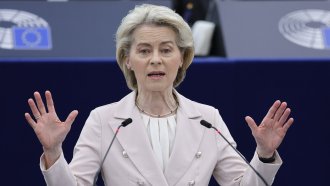Commentary:
Dmitri Medvedev wants guarantees from the European Commission for TurkStream. Bulgaria will pay happily either way

Russian Prime Minister Dmitri Medvedev was on a two-day visit to Bulgaria this week. The main theme was TurkStream, which for some reason Bulgaria is very keen on building. According to some experts, a partial reason for this eagerness might be the fact that Russia wants back some 125 million euro it gave Bulgaria for the South Stream project. Now that the project is dead, the money is due back and one way not to have to return it is to reallocate it for TurkStream.
The possible Bulgarian extension of TurkStream would be a gift on a silver platter to Russia: Bulgaria will pay for the pipes, which would transit Russian gas to Central and South Eastern Europe, and with virtually no strings attached. The Bulgarian gas infrastructure company, Bulgartransgaz recently announced the tender for the construction: almost 3 billion leva excluding VAT. Building a route for Russian gas to Europe, which is an alternative to the one passing through the Ukraine is an important strategic goal of Gazprom’s, it has been for a while, and is hardly a secret. Not only is TurkStream a real possibility to achieve this goal, but it will bear the bonus of having Bulgarian public money to cover a significant chunk of the costs. In fact, Bulgartranzgas announced the tender for the pipes before any type of guarantee that these pipes will have actual gas to transit. This alone speaks volumes as to the eagerness of this government to do Gazprom’s biding in the EU.
Medvedev made it clear that Russia wants guarantees for the continuation of TurkStream through Bulgarian territory from the European Commission, not from Bulgaria. Medvedev, as did Putin a while ago when Bulgarian Prime Minister Boyko Borissov visited, insists that Bulgaria pulled away from South Stream and holds – at least verbally – Bulgaria responsible for the cancelation of the project. The real reasons for the collapse of the South Stream are much more pragmatic: most of the key participants of the project had abandoned the project, and the European Commission had already announced officially that the project contradicts EU rules. Bulgaria did not pull away from the South Stream before Putin announced the project dead in 2015. But the Bulgarian PM has never contradicted the notion that it is Bulgaria’s fault that the South Stream project collapsed. He even made a semi-apology to Putin for it during his visit to Moscow, saying that like a big brother, Russia has forgiven us.
Medvedev’s demands for guarantees was elaborately voiced by the pro-Russian parties in Bulgarian politics. The Bulgarian Socialist Party and the far-right nationalist ATAKA (part of the ruling coalition) demanded guarantees from the government that TurkStream will pass through Bulgarian territory. Another two Russian sympathizers, ABV and VOLYA also joined in on the request.
“We expect from this government to request and receive the guarantees from the European Commission, which the Russian side expects, and not PR stunts and talks.”, BSP leader Korneliya Ninova said on Tuesday.
She insisted in a threatening tone that the Russian side would not commit to having TurkStream pass Bulgaria if it doesn’t have guarantees from the European Commission. As if this pipeline is Bulgaria’s strategic goal, not Gazprom’s.
“This is why we have questions for Bulgaria’s government. Did it request such a guarantee? If so, did it receive an answer? If not, why has it not requested them and what steps does it intend to take going forward in order to get these guarantees? Otherwise it would seem that the Bulgarian government is at a stage of just having good intentions, pre-elections PR before the European elections and nothing concrete. From here on in, the ball is in PM Borissov’s court”, she added.
If this were a debate in the public sphere, it would have been legitimate. Pro-Russian parties, even if they do another power’s bidding in the country, do also reflect a significant chunk of Bulgarian society, which is pro-Russian to the extent of wishing Bulgaria were a part of a Eurasian alternate union instead of the EU. The problem is that there is a behind-the-scenes consensus among all the parliamentary parties, especially when it comes to the large-scale Russian energy projects. The major parties, the ruling GERB and the opposing BSP do not have opposing views, even though they try di dissociate between each other, especially before elections. The difference is that GERB often talks against these projects, and BSP is openly for them. But when it comes to doing, they are entirely in line with one another. They both serve the same interest, as do the smaller parliamentary parties and work towards the same goal. And this is the real crisis of the democratic process of the Bulgarian Parliament. It is not that there are groups putting forward Russian interests. It is that they all are, only some are open and proud for it and others tend to mask it.
In other news:
The Movement of Rights and Freedoms (DPS) and GERB pardon 8 million leva debts of the Grand Mufti
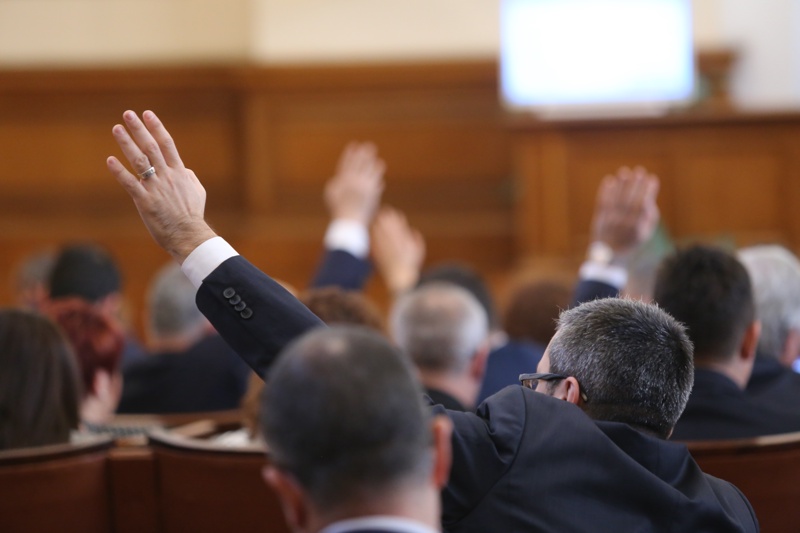
Parliament just passed amendments to the Religions Act on its first reading, which would lead to the cancelation of 8 million leva worth of debts of Bulgaria’s Grand Mufti. The largest parliamentary opposition, the Bulgarian Socialist Party is still boycotting the Parliament, so they were absent. Although it is uncertain how they would have voted had they been present for the vote.
The coalition partner, the group of three far-right nationalist parties, the United Patriots protested the bill raucously but with the votes of the opposition not in Parliament, the unofficial coalition between GERB and DPS could easily pass any bill through Parliament.
Neither GERB nor DPS gave any economic justification for the bill, but the official motives point out that unless the debts are cleared, the Grand Mufti cannot apply for state subsidies, which Parliament passed two months ago. With the votes of the same two parties, Parliament passed amendments, which drastically increased the state subsidies for the two largest religious organizations in Bulgaria: The Orthodox Church and the Grand Mufti. But apparently the Mufti’s outstanding debts made it impossible to access them, and now that obstacle seems to have found its solution.
It is unclear precisely what exactly are these debts and to whom, but according to the head of the Grand Mufti, most of the debts are for outstanding property taxes and social security.
The Grand Mufti is DPS’s constituency and it might as well want to excuse millions in taxes for it. GERB is not a natural lobbyist in this case, however. This is the consecutive instance, in which GERB pushes forward bills and resolutions, which are beneficial solely to DPS, and often border the criminal. Thus, the important takeaway, again, is that DPS calls the shots and whatever it wishes, GERB delivers.
Supreme Court rules an environmental impact assessment of Pirin Management Plan must be made
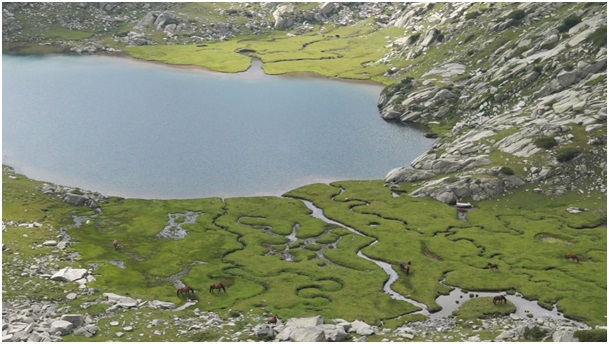
The Supreme Administrative Court ruled to overthrow Environment Minister Neno Dimo’s decision that changes to the Pirin Management Plan must undergo an environmental assessment. The minster made a unilateral decision that such an assessment isn’t needed for the changes to the plan, although they entailed significant expansion of the zones in the park where construction plans may take place. The government then motivated the step with the need of a second gondola lift for the Bansko ski zone.
Bulgarian legislation requires such an assessment to be made before making any changes to management plans of protected territories but Minister Neno Dimov asserted at the time this requirement does not apply. WWF and the Bulgarian Association of Parks took the case to the Supreme Administrative Court, which ruled in their favor. The decision may be appealed within 14 days.
European Commission launches three penal procedures against Bulgaria in the environment sector
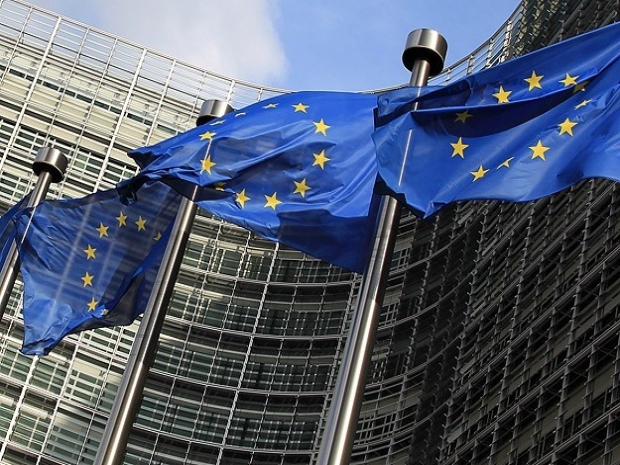
The European Commission will launch three penal procedures against Bulgaria for violations of the regulations dedicated to the protection of seas and oceans from human activities. Bulgaria was due to submit a report in connection to these regulations but has failed to do so in time. This is the reason for the first procedure. Furthermore, the country has failed to synchronize its legislation with the EU relevant norms, this is the reason for the second. Finally, the third is for failure to provide information, which the commission has requested. The information includes various geographical, transport and other data, reflecting different specifics of the territorial make-up of the country.
Bulgaria is not the only member state to receive final warning for not complying with EU rules regarding the protection of sea and ocean waters. Croatia, Cyprus, Denmark, Lithuania, Malta, Slovenia, Spain and Great Briton also have failed to fulfill the EU requirements.
We are securely marching towards autocracy: Head of Supreme Court of Cassations Lozan Panov
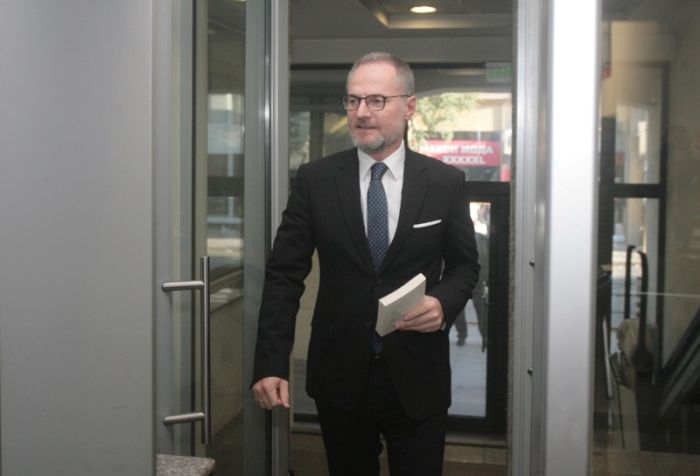
The head of the Supreme Court of Cassations and a regular target of Chief Prosecutor Sotir Tsatsarov gave an interview for Sega Daily, voicing his concerns about the state of the rule of law in the country.
“The events in Bulgaria over the past years remind me of the historical context, in which the national socialism developed”, he said.
“I think that the time has come for us to realize that the rule of law is not a state, which is to be achieved, but an ideal to be constantly perused. The judges are those, who should not be silent in the face of the approaching danger. Resistance from the judicial system is now reduced to a few voices, as the goal remains for them to be silenced as soon as possible”, he went on to say.
In his words, the fear among the members of the judiciary is rising. The powerful of the day, he says, demands that the courts work on cases selectively.
Regarding the many checks into him by various state institutions, likely designed to intimidate him to rethink his efforts for an independent justice system, Panov said:
“I understand the message this sends to the magistrates, who review penal cases, where the Prosecutor’s Office might not be satisfied with the ruling. If all of this can be done to the head of the supreme court, upon his order for the law to be upheld [by his order of inquiry into the proceedings against former mayor of Mladost Dessislava Ivancheva and her deputy Bilyana Petrova], what could one expect to happen to an ordinary judge, who does not comply with the requests of the prosecutors?”, Panov said.
As for the several probes into him, which are all due to produce their conclusion by March 20, Panov said:
“To me it is astonishing how several institutions, which have nothing in common whatsoever are able to work in such a synchronized way. I’d like to believe they do not work under the direction of the same coordinator, but this proves challenging. But I shiver at the thought that everything has one common command station, which would mean that our state is fully captured.”
Bivol.bg uncovers Bulgarian companies, politicians and institutions in the Troika Laundromat scheme

The investigative site Bivol.bg published new reporting linking 130-million-euro wire transfers to Bulgarian bank accounts with the Russian money laundering scheme knows as Troika Laundromat. The Troika Laundromat is a massive Russian financial network, which helps people move problematic funds to safety. The reporting reveals some Bulgarian beneficiaries of the scheme. Bivol.bg is a partner in a large-scale investigative journalism project targeting international organized crime. As part of the project the consortium has analyzed the largest leak of bank documents with information about 1,3 million transactions totaling at about 300 billion euro.
The 130 million euro, which the analysis uncovered a transfer to the Bulgarian embassy in Moscow of about 400’000 US dollars. Among the other more prominent Bulgarian names in Bivol’s reporting are Burgas governor Valcho Cholakov, different development companies, which build vacation homes along the coast, Russian citizens, who own Bulgarian property, and the municipality of Tsarevo through its former mayor Petko Arnaudov.
The Registry Agency spends more for PR than for technical support and security of the Trade Registry

The collapse of the Trade Registry back in August of last year left the country without one of its key information systems and caused a crisis in the whole business sector. The system broke down due to hard disk defects and the back-ups failed. The registry is used to finalize most transactions and changes in a company, and has no alternative. This meant that companies were left in limbo to wait until the registry was restored in order to execute a number of key administrative tasks.
It’s been half a year since then and the registry still has no idea why the crisis occurred, nor why did the back-ups fail. Mediapool’s Krassen Nikolov submitted an inquiry to the registry under the Access to Public Information Act about the agency’s spending, in an effort to find whether the registry is more secure now than it was six months ago.
Back then it became clear that the amount of money the agency pays for technical support could cover the salaries of no more than two qualified personnel, which is obviously insufficient when it comes to one of the most important information systems in the country.
The budget for technical support and security is scarce, but instead the agency has allocated an amount totaling at about 50% more than its total technical support to PR services: this total ranges from fees to a PM company for an image strategy to ad slots in media outlets.
Ключови думи
За честна и независима журналистика
Ще се радваме, ако ни подкрепите, за да може и занапред да разчитате на независима, професионална и честна информационно - аналитична медия.
 0 коментара
0 коментара
Екипът на Mediapool Ви уведомява, че администраторите на форума ще премахват всички мнения, съдържащи нецензурни квалификации, обиди на расова, етническа или верска основа.
Редакцията не носи отговорност за мненията, качени в Mediapool.bg от потребителите.
Коментирането под статии изисква потребителят да спазва правилата за участие във форумите на Mediapool.bg
Прочетете нашите правила за участие във форумите.
За да коментирате, трябва да влезете в профила си. Ако нямате профил, можете да се регистрирате.
